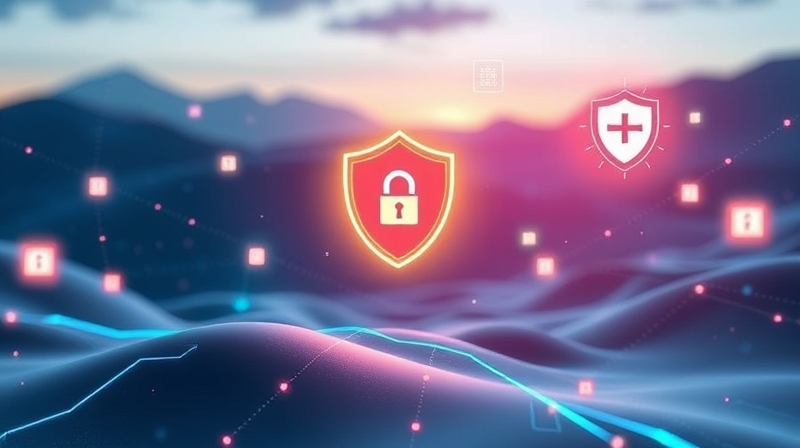In the ever-evolving digital world, keeping your online presence secure is not only important, but essential for your overall peace of mind. Protecting your privacy in today’s vast online landscape requires more than just common sense. You need practical strategies that adapt to emerging threats and technologies. Staying secure online is a continuous effort that calls for regular updates, careful choices, and the use of specialized tools. As technology progresses and new vulnerabilities emerge, it is crucial that you remain proactive in the protection of your virtual confidentiality.
Entering into a new digital era means rethinking how we manage our online lives. In 2025 and beyond, the landscape of online privacy will continue to be shaped by advances in technology, regulatory changes, and evolving threat vectors. The decisions you make today can have lasting impacts on your digital safety tomorrow. This guide introduces practical methods that can significantly enhance your online privacy.
Embrace Privacy-First Technologies
An effective way to secure your online activity is by using privacy-focused browsers and search engines. Many traditional web browsers and search engines collect vast amounts of data about your browsing history. By switching to privacy-centric options such as Brave Browser and DuckDuckGo, you are making a strong commitment to maintaining your digital confidentiality. These tools block unnecessary tracking and help you regain control over your personal data.
Using privacy-enhancing technologies not only helps protect you from data breaches but also minimizes personalized advertising and unwanted content recommendations. Over time, investing in these tools will pay dividends in safeguarding your personal space in the digital world.
Encrypt Your Digital Communications
Encryption is a cornerstone of online security. Whether it's email, text messages, or voice calls, encrypting your communications ensures that your information remains private even if intercepted by third parties. Messaging apps like Signal offer end-to-end encryption, which means that only you and the recipient can read the messages. Encryption makes eavesdropping nearly impossible, thus sustaining the confidentiality of your personal exchanges.
In addition to messaging, consider encrypting files and data stored on cloud services. Even if these platforms are compromised, your data will remain indecipherable without the key.
Build Robust Password Practices
Passwords remain the first line of defense against unauthorized access. Without strong passwords, even the best-encrypted systems can be breached. That is why it is imperative to create unique, complex passwords for each of your online accounts. Password managers like 1Password simplify this process by generating strong passwords and storing them securely for easy access.
A good password management strategy balances convenience with security, ensuring that your digital identity is always protected. Review your passwords regularly and update them to further fortify your defenses.
Utilize Virtual Private Networks (VPNs) for Extra Security
Another powerful tool in your cybersecurity toolkit is a Virtual Private Network (VPN). VPNs encrypt your internet traffic, helping to mask your IP address and prevent third parties from tracking your activities online. For many users, using a VPN is the simplest way to ensure that their browsing remains confidential and secure, especially on public networks.
- Enhanced privacy: VPNs provide an extra layer of security by preventing outsiders from monitoring your online behavior.
- Bypass restrictions: They allow you to access geo-restricted content without worrying about exposing your location.
- Data protection: VPNs encrypt your information, protecting sensitive data from potential cyber threats.
Adopting a good VPN service is a robust measure to ensure that your internet footprint remains private.
Handle AI Interactions with Care
As artificial intelligence becomes more entwined with our daily experiences, it is important to be cautious about the information shared with AI platforms. Many AI services collect data to improve performance, but this sometimes comes at the cost of your privacy. Tools like Venice offer private AI interactions that allow you to benefit from technological advancements while retaining control over your data. Be selective and critical about which AI platforms you trust with your personal information.
Review privacy policies carefully and adjust settings to limit data sharing whenever possible. Staying informed about how your data is used can empower you to make better choices.
Lastly, regularly review and update your privacy settings across devices and online accounts. Both mobile operating systems and social media platforms provide options that let you control what data is collected and how it is used. Informed decisions and proactive privacy management are vital steps toward maintaining confidentiality in a data-driven world.
Implementing these methods can help solidify your defenses in the digital realm. Remember, the essence of digital security lies in being vigilant and adaptable. With the right tools and a proactive approach, you can safeguard your virtual confidentiality and protect yourself against the ever-changing risks of the digital age.
By embracing privacy-first technologies, encrypting communications, managing your passwords wisely, using VPNs, handling AI interactions with care, and regularly reviewing privacy settings, you create a resilient shield against potential threats. Your commitment to online privacy not only empowers you but also contributes to a more secure digital community for everyone.








